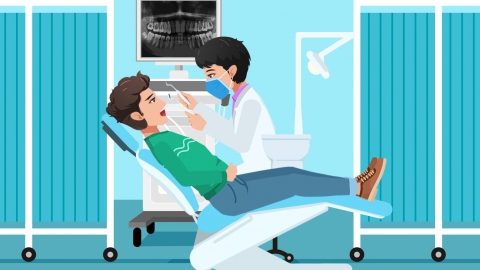Can a patient with low-grade fever have a tooth extracted?
Patients with low-grade fever are generally not advised to have teeth extracted. The cause of the fever should first be identified and the fever resolved. Only after the body has stabilized should a doctor evaluate whether tooth extraction is appropriate. It is recommended to seek timely medical care, undergo relevant examinations to clarify your health status, and follow medical advice for proper management.

A low-grade fever often indicates an underlying infection or inflammation in the body, possibly signaling conditions such as respiratory infections or localized oral inflammation. At this time, the body's resistance is weakened. A tooth extraction wound could become an entry point for infection, potentially causing the existing infection to spread. It may also intensify postoperative inflammatory responses, delay wound healing, and even trigger more severe systemic discomfort.
If you are experiencing dental pain or other tooth-related issues, the low-grade fever should still be addressed first. Diagnostic tests can help identify the cause of the fever, and targeted treatment should continue until body temperature returns to normal and symptoms such as fatigue or body aches have resolved. After recovery, visit the dental department at a hospital where a dentist can determine whether tooth extraction is necessary and decide on the appropriate timing.
In daily care during a low-grade fever, ensure adequate rest and drink plenty of water. Maintain good oral hygiene by rinsing with a mild mouthwash after meals. Avoid spicy or hard foods to minimize irritation to the mouth. Monitor your body temperature closely, and only consider matters related to tooth extraction after full recovery.





